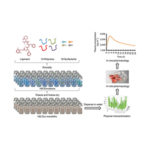 Researchers from the University of Liverpool have developed a method of delivering pediatric HIV drugs using solid drug nanoparticles, according to a study published today in Nature Communications.
Researchers from the University of Liverpool have developed a method of delivering pediatric HIV drugs using solid drug nanoparticles, according to a study published today in Nature Communications.
There are no clinically available oral nanotherapies for HIV patients and pediatric HIV medicines are not widely available, according to the researchers.
The team examined a current pediatric HIV medicine that uses ethanol to solubilize lopinavir, an antiretroviral. The drug is not easily soluble, so creating an oral formulation that can efficiently deliver the drug for treatment is tricky.
Study researchers generated a water dispersible nanotherapy using solid drug nanoparticles, removing the need to use alcohol in the medicine. Solid drug nanoparticles can improve drug absorption in the body, which reduces the dose and cost per dose. The researchers reported their method for screening for possible solid drug nanoparticle candidates with high drug loading capacity.
The nanoparticle’s preclinical development process is detailed in the team’s published study and the nanoparticles are being used in ongoing human trials.
“The fruits of our interdisciplinary research are beginning to be realized,” pharmacology professor Andrew Owen said in prepared remarks. “Our approach has the potential to overcome challenges with current antiretroviral therapy, which include administration of high doses needed to achieve efficacious concentrations in the body, and the urgent need for better formulations for children living with HIV.”
“The wide applicability of our strategy has implications for multiple therapy development programs and we are actively engaged in the creation of nanomedicine options to impact a range of clinical needs,” materials chemistry professor Steve Rannard added.

